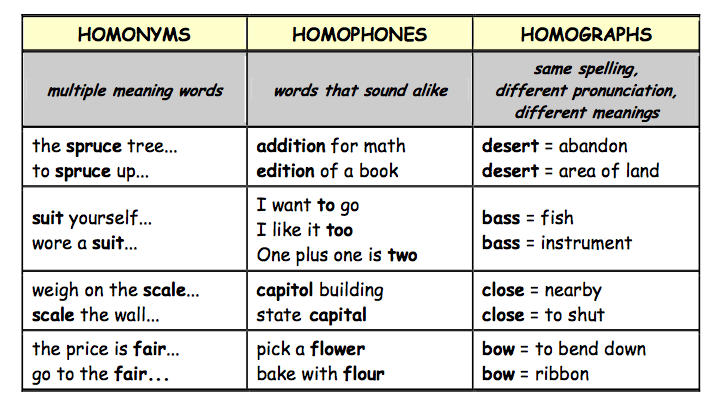Minggu, 12 Juni 2016
Needs Analysis (ESP)
Posted by Restina Dayanti on 06.17
NEEDS ANALYSIS
(Module of
Economic Students)
Submitted as One of
Assignments of ESP
Course
Taught by Indah
Muzdalifah,
M.Pd
By
Kristina
Dayanti
(1488203029)
ENGLISH EDUCATION
DEPARTMENT
FACULTY OF EDUCATION
AND TEACHERS TRAINING
UNIVERSITY OF LANCANG
KUNING
Minggu, 05 Juni 2016
An idiom is a word or phrase
which means something different from its literal meaning. Idioms are
common phrases or terms whose meaning is not real, but can be understood
by their popular use.
Because idioms can mean something different from what the words mean
it is difficult for someone not very good at speaking the language to
use them properly. Some idioms are only used by some groups of people or
at certain times. The idiom shape up or ship out, which is like saying improve your behavior or leave if you don't, might be said by an employer or supervisor to an employee, but not to other people.
Idioms are not the same thing as slang.
Idioms are made of normal words that have a special meaning known by
almost everyone. Slang is usually special words that are known only by a
particular group of people.
To learn a language a person needs to learn the words in that
language, and how and when to use them. But people also need to learn
idioms separately because certain words together or at certain times can
have different meanings. In order to understand an idiom, one sometimes
needs to know the culture the idiom comes from.
The Example of Idioms:
1. Break a leg (A way to wish someone good luck)2. To live it up (To enjoy life, to live widely)
3. To kick the bucket (To die)
4. Shape up or ship out (Used to tell someone that they should leave if they don't improve their behavior or performance)
5. To shed crocodile tears (To cry about something but without actually caring)
6. Wild goose chase (A useless journey or pursuit)
7. There's no room to swing a cat (There is not a lot of space)
8. To pay through the nose (To pay a lot of money, more than is normal)
9. To bark up the wrong tree (To choose the wrong course of action)
10. To spill the beans (To tell a secret)
11. It's raining cats and dogs (It's raining heavily)
12. To get into hot water (To get into trouble)
13. To be chicken-hearted (To be scared)
14. Top dog (Leader)
15. To smell a rat (To think that something is wrong)
16. To chicken out (Not doing an activity because of fear)
17. To give up (To quit)
18. To give up on (To stop believing in something or someone)
19. I could eat a horse (To be very hungry)
20. To be on top of the world (To be really happy)

English and American
proverbs are almost second nature when delivered. The origins are quite
often little known, yet the expressions are popular. Ethnic proverbs, on
the other hand, may be a little deeper to digest, and require
non-natives of the proverb’s country of origin, to think about the
meaning in order to better understand how it applies to their lives.
What is a proverb?
A proverb is most often a phrase or saying that gives advice in an obscure way. The phrase usually has an allegorical type of message behind that when first heard may seem a little odd. Usually a proverb is very well known because of its popular use in colloquial language.
Role of Proverbs in Society
Proverbs play many roles in society. The first, possibly, most common role that a proverb plays is to educate. Most often tossed around as expert advice in conversation, the innate role to educate people on what might happen if they do something.
Think of a proverb as a little tidbit of wisdom that just about everyone no matter where they are from can offer. There is a proverb for just about every circumstance, and proverbs can be applied to any situation.
English and American proverbs are almost second nature when delivered. The origins are quite often little known, yet the expressions are popular. Ethnic proverbs, on the other hand, may be a little deeper to digest, and require non-natives of the proverb’s country of origin, to think about the meaning in order to better understand how it applies to their lives.
Proverbs play many roles in society. The first, possibly, most common role that a proverb plays is to educate. Most often tossed around as expert advice in conversation, the innate role to educate people on what might happen if they do something.
Think of a proverb as a little tidbit of wisdom that just about everyone no matter where they are from can offer. There is a proverb for just about every circumstance, and proverbs can be applied to any situation.
English and American proverbs are almost second nature when delivered. The origins are quite often little known, yet the expressions are popular. Ethnic proverbs, on the other hand, may be a little deeper to digest, and require non-natives of the proverb’s country of origin, to think about the meaning in order to better understand how it applies to their lives.
English Proverbs
Some examples of English proverbs include:
1. Actions speaks louder than word.
Meaning: What you do is more important than what you say.
Example: Don't just tell me you're going to change. Do it! Actions speak louder than word.
2. All good things must come to an end.
Meaning: Everything ends; good times don't last forever.
Example: I wish this vacation would go on forever. It's too bad that all good things must come to an end.
3. A picture is worth a thousand words.
Meaning: An image can tell a story better than word.
Example: I wasn't sure that he loved her, but then I saw them hugging at their airport. A picture is worth a thousand words.
4. A watched pot never boils.
Meaning: If something takes time to do, it doesn't help to constantly check on it. You just have to give it time.
Example: I know you think he's going to be a great guitar player one day, but stop criticizing him so much. He just started taking lesson two weeks ago! A watched pot never boils.
5. Beauty is in the eye of the beholder.
Meaning: what is "beautiful" is different for each person.
Example: I think their house is ugly, but they seem to like it. Beauty is in the eye of beholder.
Homonyms, Homophones, and Homographs
Posted by Restina Dayanti on 07.55
The words homonym, homophone, and homograph are grammatical terms that
are easy to confuse with one another because their meanings are all
closely related, so let’s go through each one of them and see what the
differences are.
- A homograph is a word that has the same spelling as another word but has a different sound and a different meaning.
*lead (to go in front of) / lead (a metal)
*wind (to follow a course that is not straight) / wind (a gust of air)
*bass (low, deep sound) / bass (a type of fish)
- A homophone is a word that has the same sound as another word but is spelled differently and has a different meaning.
to / two / too
there / their / they're
pray / prey
- A homonym is one of a group of words that share the same pronunciation but have different meanings, whether spelled the same or not.
Examples:
A further example of a homonym, which is both a homophone and a homograph, is fluke. Fluke can mean:
- A fish, and a flatworm.
- The end parts of an anchor.
- The fins on a whale's tail.
- A stroke of luck.
These meanings represent at least three etymologically separate lexemes, but share the one form, fluke. Similarly, a river bank, a savings bank, a bank of switches, and a bank shot in pool share a common spelling and pronunciation, but differ in meaning.
The words bow and bough are examples where there are
two meanings associated with a single pronunciation and spelling (the
weapon and the knot); two meanings with two different pronunciations
(the knot and the act of bending at the waist), and two distinct
meanings sharing the same sound but different spellings (bow, the act of bending at the waist, and bough,
the branch of a tree).
In addition, it has several related but distinct
meanings: a bent line is sometimes called a 'bowed' line, reflecting
its similarity to the weapon. Even according to the most restrictive
definitions, various pairs of sounds and meanings of bow, Bow and bough are homonyms, homographs, homophones, heteronyms, heterographs, capitonyms and are polysemous.


Langganan:
Postingan (Atom)

Video Semantics